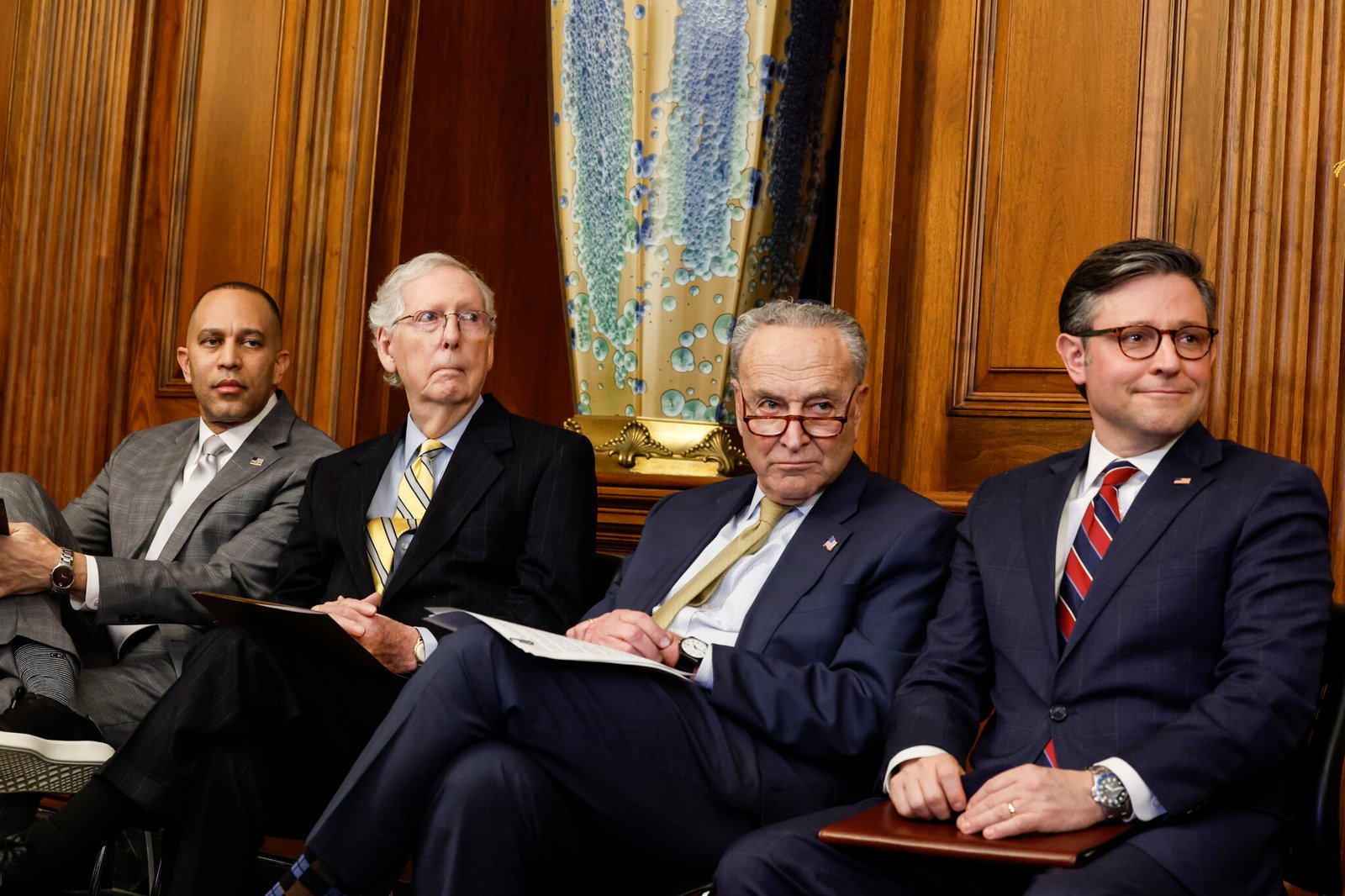Chuck Grassley
Congress Stumbles to a Close with a Mere 78 Laws Passed

WASHINGTON — Congress is on track to spend just 35 days in the nation’s capital for the remainder of the year, marking the end of one of the least productive sessions in decades.
The 118th Congress has enacted only 78 public laws, a significant decline from the hundreds passed in previous sessions. Despite the limited time left, the likelihood of enacting multiple laws remains low.
Lawmakers have increasingly bundled bills into large legislative packages instead of passing them individually, contributing to this lack of productivity.
Efforts to pass bipartisan legislation on issues such as immigration policy, railway safety, the farm bill, tax law, and children’s online safety have all failed.
Despite reaching consensus on must-pass items like annual government funding bills, lawmakers were six months behind schedule and are likely to miss their deadline again, necessitating another stopgap spending bill.
Numerous factors have contributed to this Congress’s lack of productivity, including election-year politics and limited time on Capitol Hill.
Molly Reynolds, a senior fellow at the Brookings Institution, notes that both parties are focused on flipping control of the House and Senate. This has added another layer of complexity to already existing disagreements within Congress, leading to more infighting and less bipartisan cooperation.
A bipartisan trio of senators worked for months on a deal for immigration reform, only to see it fall apart when Donald Trump opposed it. Such outcomes discourage Congress members from tackling difficult issues.
The 118th Congress has been plagued by internal drama, significantly hampering its effectiveness. House Republicans began their term with a contentious vote for Speaker, taking 15 rounds to elect California Rep. Kevin McCarthy. Later, McCarthy was ousted, leading to several weeks of internal GOP chaos before Louisiana’s Mike Johnson took over.
Meanwhile, the Senate focused on confirming President Biden’s nominees, leaving little room for significant legislative action. Partisan hurdles also prevented progress on any substantial immigration or border security reform.
The Senate tried to advance major legislation on border security and immigration, but it collapsed after Trump opposed it, making the subject a contentious election issue. Senate Republican Leader Mitch McConnell initially supported the deal but later changed his stance.
Despite the lack of productivity, lawmakers reached a significant milestone by approving $95 billion in military and humanitarian assistance, which notably included a ban on the social media app TikTok.
The current Congress’s lawmaking record pales in comparison to previous sessions. For example, the 116th Congress enacted 344 laws, while the 117th passed over 360. Historically, Congress has passed between 280 and 1,028 laws per session since the early 1950s.
Reynolds highlighted that while the number of laws has decreased, the length and complexity of those laws have increased. However, this does not justify the lack of productivity observed in the 118th Congress.
Congress will reconvene for a three-week session in September before taking another break until after Election Day. Members will likely pass a stopgap spending bill to avoid a government shutdown on Oct. 1, but substantial legislative achievements are not expected until after the elections.
The impending lame-duck session, scheduled for five weeks in late November and December, may see some progress. Lawmakers could act on government funding bills, the annual defense policy bill, and other bipartisan measures that have support in both chambers.
Some lawmakers, like Maryland Democrat Sen. Chris Van Hollen, point to accomplishments from prior Congresses when speaking to constituents. Others, like Kansas GOP Sen. Jerry Moran, focus on their committee work and personal achievements.
Sen. Chuck Grassley criticized the reduced work schedule of the Senate compared to past decades. He argued that the brief weekly sessions prevent comprehensive lawmaking and hinder efforts to solve national issues.


















